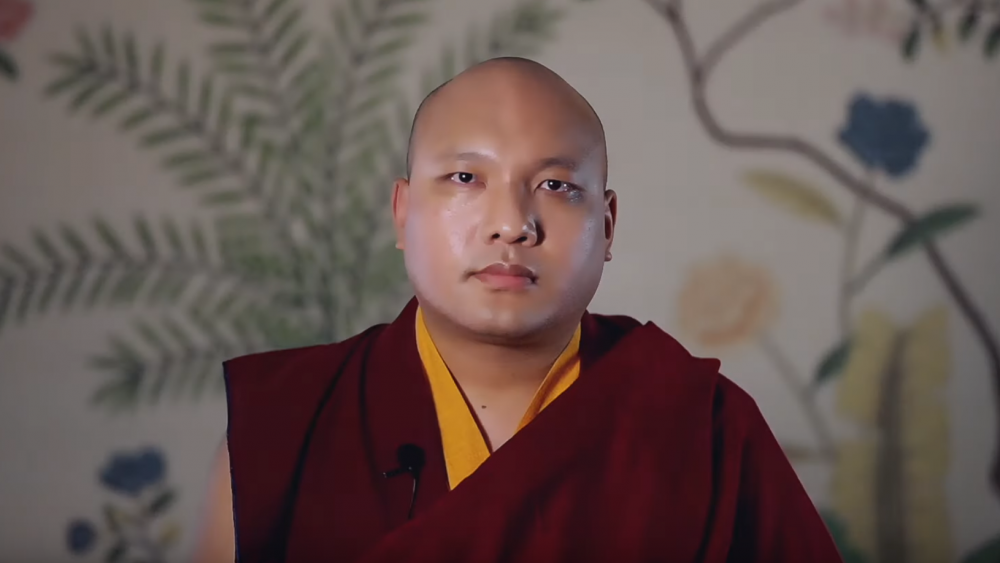I hope all of you are doing well.
Today is the fourth day of the Aspirations to End Adversity. Today, the text we will recite together is the Sutra of the Medicine Buddha.
In the Tibetan Kangyur, there are two sutras of the Medicine Buddha, one long and one short. The long one teaches about the pure realms, aspirations, and so forth of the Medicine Buddha as well as those of the other seven tathagatas—Well-Renowned Name, Majestic Melodious Sound, and so forth. However, the sutra we will recite today is the shorter one, which teaches about the aspirations and pure realm of the Medicine Buddha. In Chinese, there is also a Medicine Buddha Sutra translated by the Indian master Dharmagupta and others, which teaches the names of the Medicine Buddha and eight bodhisattvas.
In eighth-century Tibet, during the reign of the Dharma King Trisong Detsen, Shantarakshita composed three sutra rituals of the Medicine Buddha—one long, one medium, and one short. Later, when Atisha came to Tibet, it is said that while at Toding Temple, he wrote the praises “The flower of your name…” that include one stanza for each of the seven tathagatas and the well-known one-stanza praise of the Medicine Buddha, “O Bhagavan, you are equally compassionate to all…” Kadampa monasteries held the sutra rituals of the Medicine Buddha in high esteem, and because of this, Tibetan philosophical colleges always recited the sutra ritual of the Medicine Buddha, even though reciting too many pujas could create an obstacle to study and was generally discouraged.
At this time, when the coronavirus pandemic is raging across the globe, we are not only experiencing difficulties with physical health; there is also the mental hardship of feeling deprived of joy. When the body is unhealthy, there is no way for the mind to be happy. But being healthy physically does not necessarily mean that we will feel happy mentally. Thus mental happiness is more valuable than physical health. Through the vast aspirations the Medicine Buddha made in the past, through his indomitable courage and boundless compassion, it is very important for us to inspire ourselves and train in relieving all our own and others’ physical and mental illnesses and in strengthening our love for one another and our benevolent wishes.
Normally, we only remember to recite the Medicine Buddha Sutra and mantra when we get a little sick and pay it little attention otherwise. But this Medicine Buddha Sutra is not a text about medicine or treatment. It tells, when you read it, the manifold, vast aspirations or commitments that the Medicine Buddha made for the sake of other sentient beings. It is important to see whether those can have an effect on our mind and whether they can encourage us to practice virtue.
Next, please join me in reciting the Medicine Buddha Sutra with the kind intention of bringing benefit to all sentient beings.



